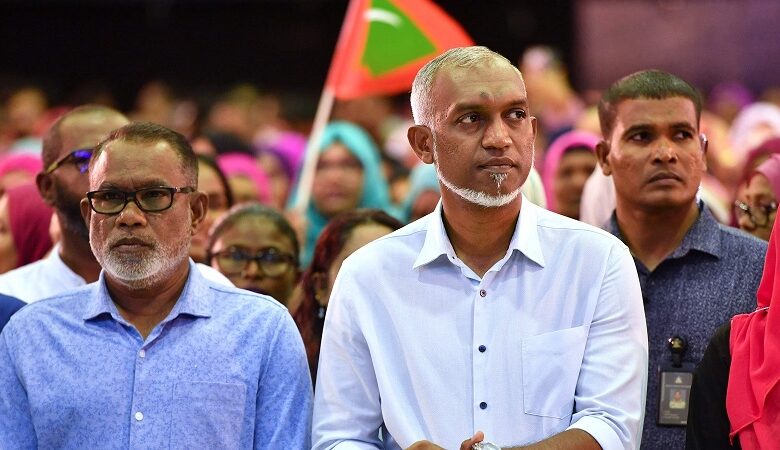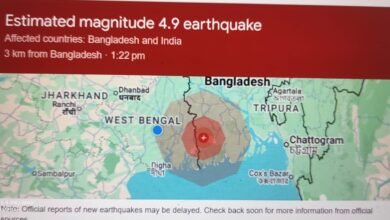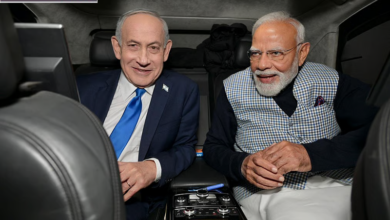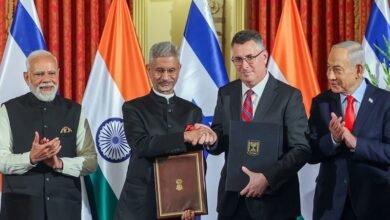India’s Strategic Response to Maldives’ Political Shift: A Measured Approach
External Affairs Minister Dr. S Jaishankar underscored the importance of maintaining amicable relations with neighboring countries, emphasizing the enduring influence of history and geography in shaping diplomatic ties.

News Mania desk/Agnibeena Ghosh/24th April 2024
Amid mounting concerns over the potential hardening of the Maldives President Mohamed Muizzu’s stance, following his party’s resounding victory in the parliamentary elections, India appears poised to maintain its measured approach for the foreseeable future. The People’s National Congress (PNC), led by Muizzu, secured a commanding two-thirds majority in the Maldivian Parliament, potentially empowering the president to enact policies with greater ease.
The implications of Muizzu’s strengthened political position have not escaped New Delhi’s attention, particularly given Male’s increasing alignment with Beijing since Muizzu assumed office last year. While the prospect of a more assertive stance from the Maldivian government may raise eyebrows in Indian diplomatic circles, sources suggest that India will adopt a cautious and calculated strategy in response to these developments.
The Maldives occupies a strategic position in India’s foreign policy calculus, particularly in the context of initiatives like ‘SAGAR’ (Security and Growth for All in the Region) and the Neighbourhood First policy. As India’s key maritime neighbor in the Southern Indian Ocean Region (IOR), the Maldives holds significant importance as a trading partner, tourist destination, and crucial ally. India serves as a primary supplier of essential commodities to the Maldives, while also being a preferred destination for Maldivian patients seeking medical treatment and students pursuing higher education.
External Affairs Minister Dr. S Jaishankar underscored the importance of maintaining amicable relations with neighboring countries, emphasizing the enduring influence of history and geography in shaping diplomatic ties. Against this backdrop, India is expected to adopt a pragmatic approach, recognizing the intrinsic interdependence between the two nations.
In the Maldivian political landscape, the Majlis, or Parliament, wields considerable authority, exercising oversight over the executive branch and playing a pivotal role in policymaking. Muizzu’s party’s overwhelming victory in the recent elections represents a significant shift in the balance of power, potentially enabling the president to advance his policy agenda with greater efficacy.
Prior to this electoral triumph, Muizzu’s PNC had been part of a minority coalition in the Parliament, limiting the president’s ability to implement key initiatives. The Maldivian Democratic Party (MDP), led by Muizzu’s predecessor Ibrahim Mohamed Solih, had enjoyed dominance in the previous Majlis, thwarting many of Muizzu’s proposed policies.
The change in parliamentary dynamics may herald a shift in Maldivian foreign policy, prompting speculation about the trajectory of India-Maldives relations. Muizzu’s administration had previously faced criticism from opposition factions for its perceived anti-India stance, raising concerns about potential strains in bilateral ties.
Despite occasional tensions, Muizzu has publicly acknowledged India’s pivotal role in supporting the Maldives, affirming the enduring nature of the bilateral partnership. India’s substantial financial assistance to Male underscores the depth of bilateral cooperation, with the Maldives owing India approximately $400.9 million as of the end of last year.
As India navigates the evolving political landscape in the Maldives, maintaining stability and preserving strategic interests in the region will remain paramount. While the prospect of a more assertive Maldivian government may present challenges, India is likely to pursue a nuanced approach, prioritizing dialogue and engagement to safeguard mutual interests and promote regional stability. Through diplomatic finesse and strategic pragmatism, India aims to navigate the complexities of the evolving geopolitical dynamics in the Indian Ocean region, ensuring continued cooperation and collaboration with its maritime neighbours.






